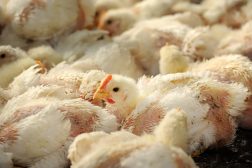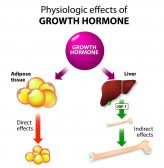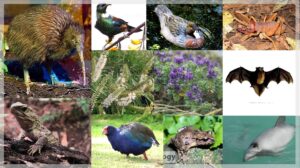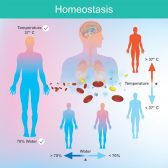Definition
noun, plural: chemoheterotrophs
An organism deriving energy by ingesting intermediates or building blocks that it is incapable of creating on its own
Supplement
Chemotrophs are organisms that obtain energy through chemical process called chemosynthesis rather than by photosynthesis. Chemosynthesis is carried out by chemotrophs through the oxidation of electron donors in the environment. Chemotrophs may be chemoautotroph or chemoheterotroph.
Chemoheterotrophs are chemotrophs that are heterotrophic organisms. They are not capable of fixing carbon to form their own organic compounds. They may be further classified as chemolithoheterotrophs or chemoorganoheterotrophs. Chemolithoheterotrophs are those that utilize inorganic energy sources whereas chemoorganoheterotrophs are those using organic energy sources. Chemoorganoheterotrophs may be further grouped based on the kind of organic substrate and compound they use. Decomposers obtain these substrates and compounds from dead organic matter. Herbivores and carnivores derive theirs from living organic matter.
Most chemoheterotrophs obtain energy by ingesting organic molecules like glucose. In contrast, chemoautotrophs are autotrophs that use chemical energy to produce carbohydrates. They utilize inorganic compounds such as hydrogen sulfide, sulfur, ammonium, and ferrous iron as reducing agents, and synthesize organic compounds from carbon dioxide.
Word origin: Gkreek chemo (chemical) + hetero (an)other + troph (nourishment)
Synonym(s):
- chemoorganotroph
- chemotrophic heterotroph
See also:
Related form(s):
- chemoheterotrophic (adjective)







